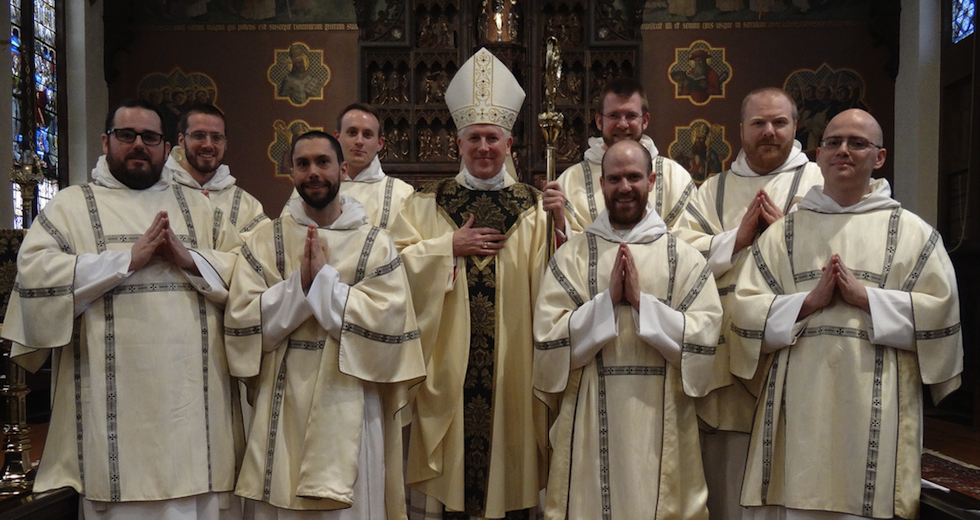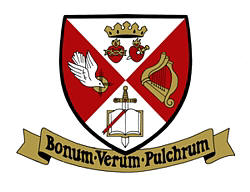
On Saturday March 8th, 2014, Brother Innocent Smith O.P. (formerly Philip Smith, SGA Class of 2004) was ordained to the diaconate by the Bishop Daniel Thomas, Auxiliary Bishop of Philadelphia. The following morning Br. Innocent served his first Mass as deacon and preached the Gospel at St. Thomas Apostle Church in Washington DC.
Br. Innocent Smith was one of eight men who received Holy Orders that day. The Dominican community of the Eastern Provence celebrated the occasion in style by hosting an evening reception for the families and friends of those who had just been ordained. Among those who attended the event were Br. Innocent’s parents, Thomas and Marika Smith, his brother Andrew Smith, and long time friends of the academy Kirk and Kathy Kramer. Two former SGA classmates of Br. Innocent, Dr. Charles Prezzia and John Bloch, were also able to attend the ordination and express their support.
One of the highlights of the evening’s entertainment was a musical performance given by several young Dominicans of the studentate. It seems that the Dominicans have gotten there hands on some old St. Gregory’s song books and have started a folk music club that meets one evening per week to learn the old songs. Br. Innocent may or may not have been instrumental in all of this. It was especially edifying to hear voices that had been trained to chant in choir apply the same discipline and rigor that is usually reserved for sacred music to songs like ‘The Parting Glass’ and ‘Dick Darby.’ (“Dick Darby?” One of the brothers was over-heard to remark, “It’s about Baptism… I guess.”)
Philip Smith graduated from SGA in 2004. He enrolled in the University of Notre Dame the following Fall, taking a double major in Philosophy and Music. During his college years Philip discerned his vocation to the Order of Preachers. After Graduating from Noter Dame in 2008, Philip joined the Order’s Eastern Provence of St. Joseph as a Novice, taking the name in religion of Innocent after the first Dominican Pope Bl. Innocent the Fifth.
After a formational year at the Novitiate House near Columbus Ohio, Br. Innocent took temporary vows of poverty, chastity, and obedience and began his formal studies at the Dominican House of Studies in Washington D.C. Br. Innocent has thrived at the House of Studies, and has been involved with several projects there in addition to his formal studies. These have included the publication of a new Dominican Hymnal and the re-founding of ‘Dominicana’ (www.dominicanablog.com) a print/blog journal of Dominican thought and theology that had been defunct since the nineteen-sixties.
In the Fall of 2013 Br. Innocent took his final Vows, and, as noted above he was ordained Deacon in March 2014. Please keep Brother Innocent in your prayers this year as he prepares for his ordination to the priesthood which is planed to take place in May 2015.
